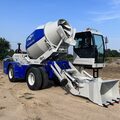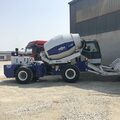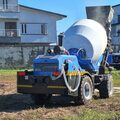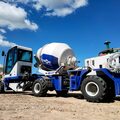Efficient loading and unloading are crucial for concrete mixer operations. Mistakes during these processes can affect concrete quality and delay projects. This article examines common errors and offers solutions, focusing on self loading concrete mixers and small concrete mixer prices.
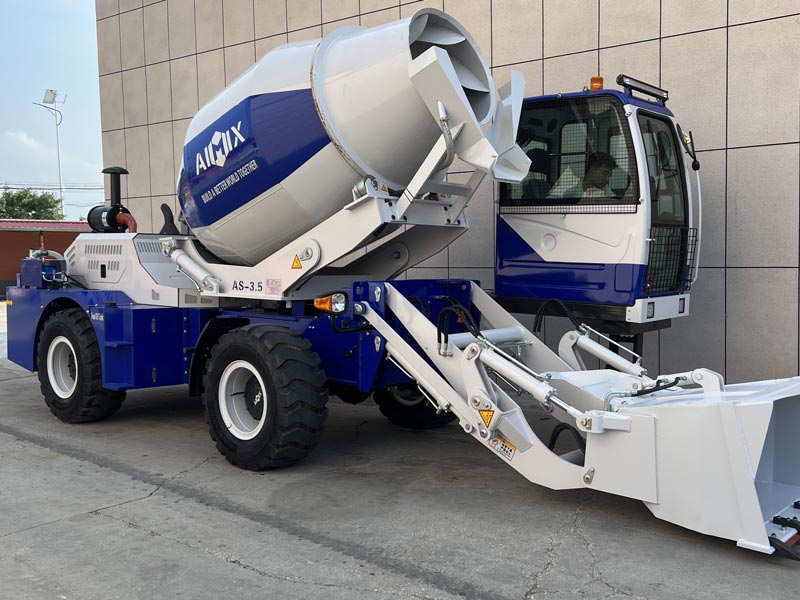
Understanding Loading Mistakes
Loading a concrete mixer requires precision and care. One common mistake is improper sequencing of materials. Incorrect sequencing leads to uneven mixing and affects concrete consistency.
Overloading the mixer is another issue. Exceeding capacity can strain the mixer and reduce efficiency. This mistake often occurs when trying to maximize output without considering equipment limits.
The self loading mixer concrete can reduce loading errors. Their automation ensures accurate material measurement and sequencing. This feature enhances mix quality and prevents common loading mistakes.
Avoiding Unloading Errors
Unloading requires careful handling to maintain concrete quality. One mistake is premature unloading, which can lead to segregation. Proper timing ensures that the mix remains homogeneous.
Another common error is uneven distribution during unloading. This mistake affects the concrete's strength and durability once placed. Attention to detail ensures that the mix is distributed evenly.
Operators should monitor the mix's condition before unloading. This practice prevents issues and guarantees optimal concrete quality.
Benefits of Self Loading Mixers
Self loading concrete mixers offer several advantages in loading and unloading. Their automation reduces human error and enhances precision. Automated measurement and sequencing ensure consistent mix quality.
These mixers streamline operations and save time. Operators can focus on other tasks while the mixer handles loading. This efficiency contributes to smoother project operations.
Self loading mixers also offer advanced controls. Operators can monitor the mix and make adjustments easily. This capability reduces mistakes and enhances concrete quality.
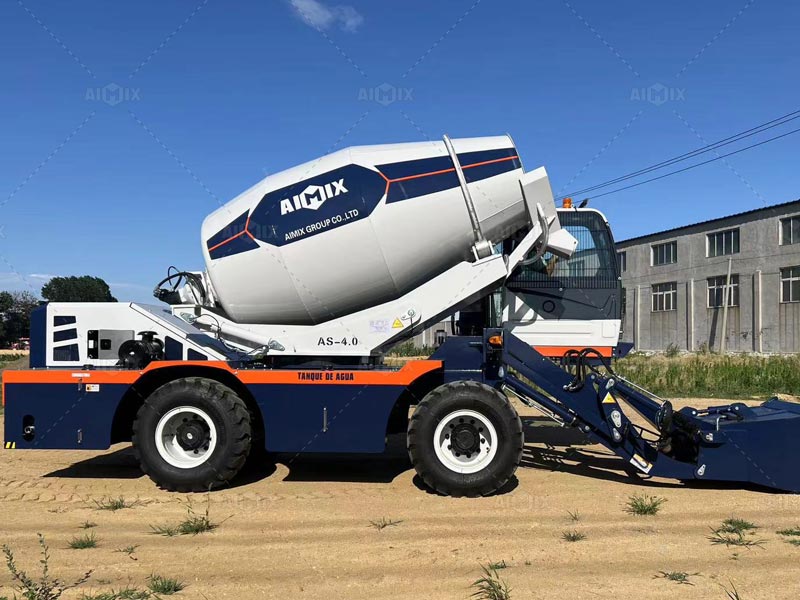
Small Concrete Mixer Price Considerations
Investing in a small concrete mixer requires careful consideration. The small concrete mixer price is an important factor, but quality should not be compromised. Cheap mixers may lack essential features, leading to mistakes and inefficiencies.
Evaluate mixers based on their features and reliability. A higher initial investment can lead to long-term savings. Reliable mixers reduce downtime and repair costs.
Consider the mixer’s capacity and suitability for specific projects. Choosing the right mixer ensures efficient loading and unloading processes.
Training and Best Practices
Proper training reduces loading and unloading mistakes. Operators should understand the equipment and work processes. Training ensures informed decisions and consistent results.
Best practices include regular equipment checks and maintenance. Properly maintained mixers operate efficiently and reduce errors. Routine inspections prevent breakdowns and enhance reliability.
Utilizing self loading mixers simplifies training efforts. Their user-friendly controls make operations easy. Operators can focus on maintaining quality and meeting project specifications.
Implementing Effective Solutions
Implementing effective solutions prevents common mistakes. Understanding the equipment's capabilities is crucial. Operators should follow guidelines for loading and unloading processes.
Regular monitoring and adjustments ensure optimal mix quality. Attention to detail prevents errors and enhances concrete strength and durability.
By focusing on efficient processes, construction companies can improve operations. These efforts lead to successful project outcomes and high-quality concrete production.
Conclusion
Avoiding common mistakes in loading and unloading concrete mixers is essential. Proper handling ensures consistent concrete quality and efficient operations.
Self loading concrete mixers offer valuable features and automation. Their precision reduces errors and enhances mix handling.
Considering small concrete mixer prices requires evaluating features and reliability. Proper investment ensures efficient project execution and long-term savings.
Training and best practices are crucial for successful operations. By focusing on these aspects, construction companies can enhance productivity and achieve high-quality concrete results.

